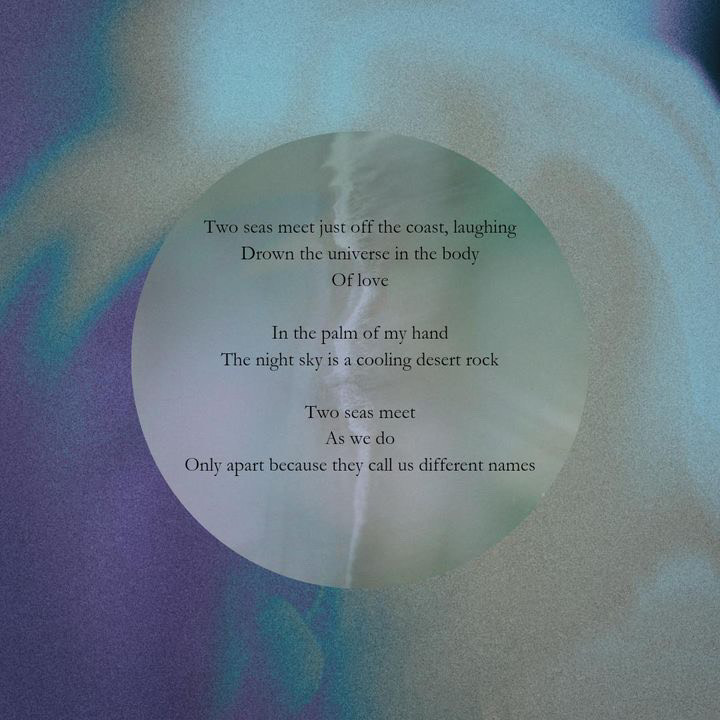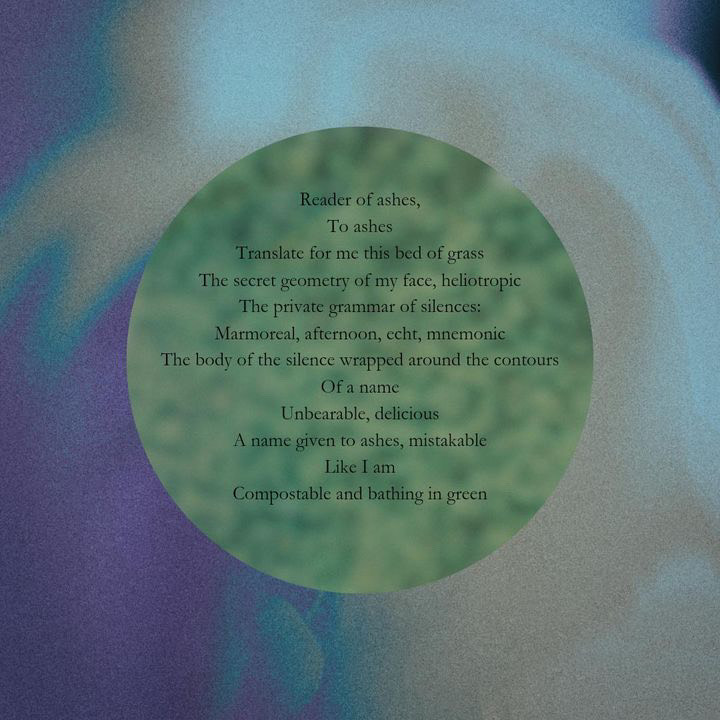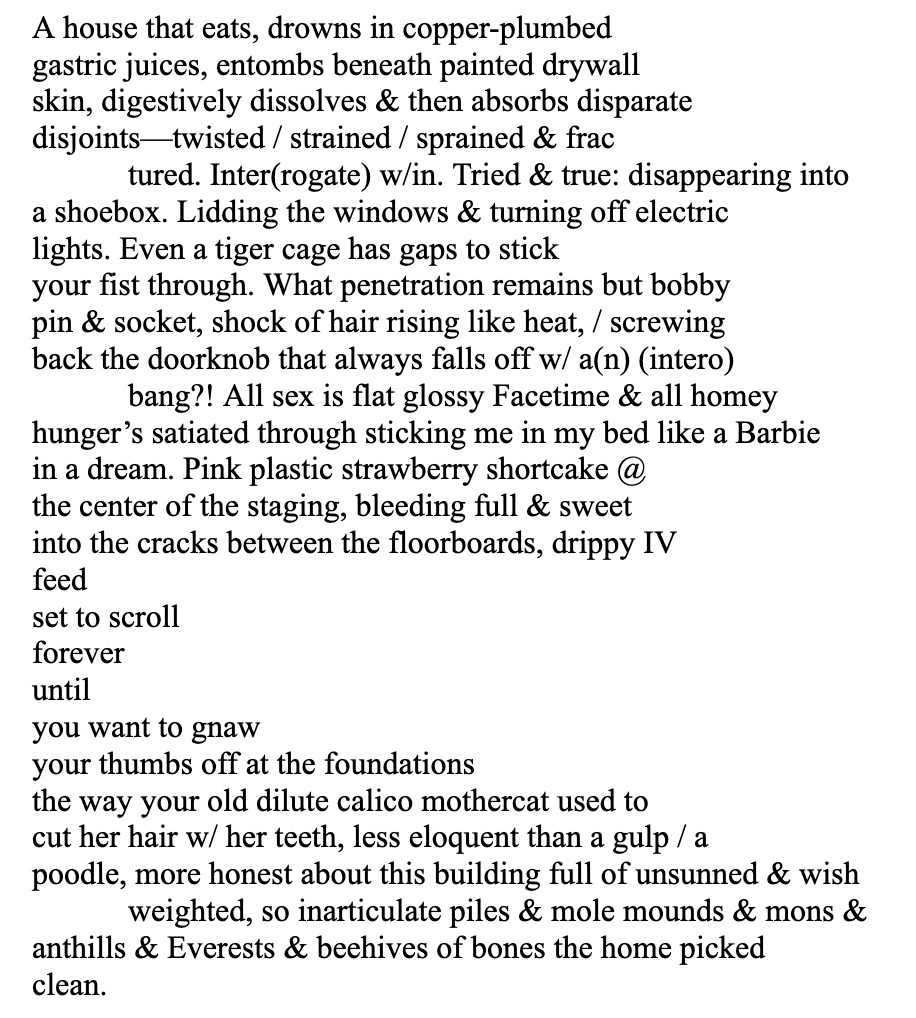By Denise S. Robbins
“The Singularity will doom us all.” Samuel says this at a moment of conversational pause. The dinner party goes quiet, for swiveling heads make no sound. Everyone waits for Sam to explain himself. But he’ll wait. He’ll wait until someone asks. The windows are open and someone, somewhere, is drumming. Cars bring their own accompaniment in quick swells.
Polite little Ariana, in a quiet voice: “What does that mean?”
Sam takes a deep breath, making his mustache quiver. His eyes are still and serious, fixed on Ariana’s, who flinches slightly but keeps his gaze. “When AI intelligence surpasses our own,” says Sam, “there will be no hope for the human race. Unless we’re lucky enough for our superintelligent robo-overlords to be gentle. Perhaps they’ll let us, as slaves, have dinner parties, like we’ll let our future children play House, as long as they don’t get out of line.” He rubs his belly as if he were the pregnant one. The others glance at his wife Carmela, standing on the other side of the room, whose flowery wrap dress expertly hides any stomach bulge.
“Hey man, you shouldn’t say that,” says blue-haired Lennie. “The word slaves.”
“This may be my last chance for anything I say to mean anything at all,” says Sam.
Carmela shoots her husband an angry look. Earlier she had explicitly asked Sam not to talk about Doomsday during his birthday Shabbat. He ignores her gaze.
“Let’s start eating,” says Carmela, trying to remind herself how nice she felt ten minutes ago, when pockets of conversation hummed around the room, an underlying current of sound, like when you realize the fridge is churning, but it’s the way voices converge into a low, cheerful drone. When her guests poured their second drink and became flushed with happiness as they hovered around the fresh baked challah like it was a newborn baby. When she lit the Shabbat candles and the fire reflected in Sam’s eyes before he moved to hug her from behind and rub her newly pregnant belly.
“But Elias isn’t here yet,” says Sam.
“He’s never here yet,” says Carmela. “Food time. Plates on laps, I’ll bring it around.” A nice big dining table is something that can always be put off, the lack of it ignorable until you have a dinner party, so they are sitting on couches around a coffee table. Carmela removes the noodle casserole from the oven and scoops a hefty portion onto each plate, along with one ripped handful of challah. She worked hard on this dish, and expects praise in equal measure to the effort she put into it, but no one seems to notice as she hands them a plate, everyone now in rapt attention as Sam explains calmly why every argument against the Singularity is wrong.
Lennie says, “We’ll create a kill switch.”
Sam shakes his head. “You think they won’t foresee that and reprogram themselves for it not to matter?”
“There are four different cheeses in this,” Carmela announces, taking a plate for herself. “Mozzarella, pepperjack, gorgonzola, and bleu.”
“Isn’t gorgonzola a type of blue?” says Lennie.
“Bleu,” says Carmela, nasally, “like bluh.”
“So is it a type of bluh?” asks Lennie.
“I’m not sure,” says Carmela. “You could Google it later. Now for the Motzi.” She leads the blessing of the bread and everyone takes a perfunctory bite of challah. “Leave room for cake!”
“Cake?” asks Sam. “What flavor?”
“It’s a surprise.”
The AI conversation continues as if it never stopped. Ariana is unconcerned about the internet advertisements: in fact, she likes how the internet seems to know exactly what she wants to purchase next, and gives her good deals, too. Lennie jokes about a robot accidentally setting off a nuclear apocalypse. Carmela sits back and disengages. She’s scarcely hungry, after hours of taste testing, and it seems the others share her lack of appetite, except for Sam, who eats his dish in big bites between words. He goes back for seconds, peeking in the fridge on the way back. He sits next to Carmela on the loveseat and kisses her on the cheek.
“Chocolate cake! You know me so well, honey. Thanks for the party.”
“Why, because it might be your last before the Singularity?” Carmela says half-sarcastically.
Sam’s smile disappears.
There’s a knock at the door.
“Elias!” Carmela checks her watch. “Who had eight o’clock?”
“I said 8:05,” says Ariana.
“Cheers to Ariana.” Carmela pours herself another glass of sparkling apple juice. “Door’s unlocked,” she calls out. The knocking continues. “Okay, I’m coming.” She opens the door to see Elias, in a pea coat and baseball cap, dripping wet.
“There was a storm,” says Elias with a grave countenance.
“We didn’t see it,” says Carmela.
“It unleashed itself on me during my walk over.”
“It must have missed us. Can I get you a beer?”
“The strongest you’ve got.”
Lennie hands Elias his recently opened bottle of 9.5 percent IPA. “I took one sip but I hate this,” he says.
Elias drinks deeply, then removes his coat and hat, putting them on the floor in a corner. “Sorry I’m late. I fell into a deep depression after reading this week’s parsha.”
“The Torah portion one about Noah’s flood?” says Carmela. “Why should that worry you? Hashem said explicitly it would never happen again. The rainbow covenant and all that.”
“Just look at me,” says Elias. “I fell into a flood of emotions, then became wet to my core. The Great Flood is upon us once more.”
“Yes. It’s called the Singularity,” says Sam. “You’re right about the parsha. Doesn’t bode well for us! Hashem decided humanity wasn’t good enough and flooded the Earth except Noah. But Noah was a nobody.”
“He had faith,” says Elias.
“Sure. That was his only quality. He believed what he was told. He built the ark. He was like a robot himself. Is that what’ll happen to us? The only survivors will be mindless slaves. He knew he had no personhood. That’s why, after the flood receded, he became an embarrassing, naked drunk.”
“Or maybe it’s because everyone he knew was dead,” whispers Ariana.
“Drunk and naked?” says Lennie. “Noah sounds fun.”
“No more talk of floods or singularities!” Carmela stands up and claps her hands. “We’re here to celebrate Shabbat and Sam. That means relax. Everybody, why do you love Sam? Let’s talk in turns.”
The room is quiet.
“Don’t everyone talk all at once,” says Carmela.
“Come on, Carmela,” says Sam, “let’s just get back to food. How about the cake?”
“Yes! The cake.” Carmela cuts the cake but no one touches it except Sam, who stares with beautifully greedy eyes as she gives him a large piece. The conversation picks back up, the discussion flowing into divots and streams, veering around how to win the robot war and landing on they all plan to live their final day alive.
When Ariana returns from the bathroom, Carmela rushes over to grab her before Ariana can re-immerse herself in AI talk. Carmela tries to think of any other other conversation topic, and finds herself telling Ariana about childhood home movies her mother recently sent her. “I haven’t seen myself with such clear eyes until this week,” she says. “I was deeply afraid of being left out. Yet I always seemed to be sitting on the sidelines by choice. The funny thing is I’ve watched these videos before. Years ago. I used to rewatch them all the time. But I never got that feeling out of them, the one I have right now, where I understand myself. How much of who I am was shaped by the way I interacted with my brothers as a kid? I wanted to be one of them but I was too small. Then I spent my whole life trying to fit in, without thinking about any sense of individuality. Only in recent years have I found that. I had to push back against my own nature. It’s just fascinating—and terrifying—to think about how much can shape a child’s life.” She rubs her stomach. “So much is out of our control. Some of it is in our control, or at least we think it is. Like, I get to decide how many years until our second child. But I have no idea how much that age gap will affect them. Sometimes siblings are better friends the further apart in age they are. Sorry, I’m going on and on.”
“No, it’s interesting,” says Ariana.
“So what traumatized you as a child?”
Ariana thinks for a moment, then says, “A robot clown toy.” She shudders. “Horrifying.”
“Here’s how we do it,” says Lennie on the other side of the room with an empty beer in his hand. “We convert everyone to Judaism. Even the robots. Then we require all technology to shut down once a week. Then we’ll have Saturdays to plan the rebellion.”
“Not good enough,” says Sam.
“And Friday nights, too,” says Lennie.
“We’re not supposed to work on the Sabbath,” says Elias. “We’d lose our favor with Hashem.”
“I think Hashem would understand in times of war,” says Lennie.
“Robots wouldn’t believe in Hashem,” says Sam. “They only believe in themselves.”
“But we created them,” says Lennie. “What’s simpler than that? We are their creators. So they have to listen to what we say about Hashem. The idea of Hashem will be beyond AI comprehension. We know it doesn’t make logical sense. God. Robots are all ‘one plus one is two.’ That’s true when you’re talking about matter and particulars. But sometimes it’s more than that. We’ll know this. They won’t. Boom. We win.”
“It’s time for the game!” calls out Carmela. “Who knows Sam best?”
“Carmela,” pleads Sam, “can we play later? We’re kind of in the middle of something.”
“I’d like to play,” Ariana says feebly.
“What’s the point of playing when Carmela will automatically win?” says Lennie. “Obviously you know him best.”
“I’m not playing,” she says. “I’m judging.”
“Who died and made you judge?” says Lennie.
“Just pick a side,” says Carmela. “Blue couch or green couch.”
Lennie is sitting in the middle of the two couches, on the floor. Elias is on the blue, Ariana on the green. Lennie leans to the left towards the blue, collapsing on his elbow at Elias’s feet. “Dudes rock.” He holds up his hand for a fistbump with Elias.
“Two groups fight for honor bestowed upon by the Birthday Boy,” says Sam in a booming voice, joining Carmela to stand by the door. “Which side will win? Which will fall into shameful decrepitude?”
Elias’s phone rings.
“Shame! Shame! Shame!” says Sam. “Your team loses one point for breaking the Sabbath.”
“Oh, really?” says Elias. “Looks like your internet…box… thing is plugged in. Don’t you lose a point?”
“The Birthday Boy loses no points,” announces Sam. “He only grants them.”
The storm comes suddenly. A burst of rain enters the open windows, splattering the plants in the windowsill. Carmela rushes over to close the windows. The rain leaves angry wet marks on the stomach of her dress.
“I told you it was storming,” says Elias.
“No one doubted you,” says Carmela, flicking the water off her flowing dress, carefully, surrounding the spot where her future baby lives.
“I should be going,” says Ariana.
“What?” says Carmela. “The game hasn’t started yet. You’re going to walk in this?”
“My Uber’s on its way. My dog is scared of storms.”
“Okay, at least the teams will be even now. Elias versus Lennie.”
“Right,” Lennie scoffs. “And we are absolutely excited about playing this dumb game.”
“Hey, hey, HEY.” Sam stands up and puts his hands on his hips. “This is not a dumb game. This is the best game in the world. Once it gets going.”
“Right,” says Lennie. “We’re definitely going to start playing it.” He gets up and slices a piece of cake.
“We never sang the birthday song!” Carmela realizes with distress. “Don’t eat the cake! Don’t eat the cake! Turn out the lights!” Sam turns out the lights and hears drawers opening in the kitchen. “Sam, where are the candles? Turn the lights back on!” Carmela rummages through the kitchen drawers, then runs to the closet to search the boxes of knick-knacks. Old Halloween costumes and unused streamers fling to the ground, piling up at her feet.
“How should I know?”
Lennie’s already eating his cake.
“Don’t eat the cake,” commands Sam.
“Nothing in this house is organized!” Carmela cries, suddenly, bursting into tears. She’s never cried in front of anyone before, but now she can’t stop the angry sobs. She’ll blame the pregnancy hormones later. Hell, she’ll blame them now, and fight the urge to squeeze her stomach. The others grimace at one another, wondering if they should comfort her, leave, or pretend they don’t see what’s happening. They sit in silence as she continues to cry, turning boxes upside down, rifling through assortments of Tums and old journals. Sam directs his guests to their coats and offers his two spare umbrellas. Carmela hardly hears as the door opens and closes, wading deeply now into the suitcase closet.
Sam walks calmly through the kitchen, peering into the top shelf of the pantry, the one too high for Carmela to reach. The box of birthday candles is hidden behind a bag of whole wheat flour.
He brings it to his wife, now lying on the bed, staring at the ceiling with a blank look. Her cheeks are red and wet with tears. The windows in the bedroom are still open, bringing in small puddles from the storm.
“Hey. Hey, hey.” Sam leans over her and strokes her hair back. “Look what I found.” He shows her the candles.
“We need a real table,” Carmela says softly.
“We don’t need a real table.”
“Yes, we do.”
“Okay. We can buy one.”
“Better plates, too, and wine glasses that match.”
“Of course.” He begins massaging her temples.
She moans. “I’m sorry I ruined your birthday.”
“I had a great time. And now I get to go to bed early, get a good night’s rest? Score!”
Carmela moans again, but this time a smile emerges at the side of her lips. The modem beeps, complaining about a dying battery. “We’re terrible for not unplugging the modem,” says Carmela. “We’re the worst.”
“So said the man who’s never earlier than two hours late.” Sam reaches down to Carmela’s dress, pulling it up over her belly, exposing old white underpants.
“All my cute undies are in the hamper. I didn’t want to ask you to do laundry today.”
“These ones are adorable,” Sam says, and puts his ear on her stomach, as if listening to the ocean.
“Our son’s in there,” he says.
“Yeah.” Carmela picks up a strand of Sam’s black hair.
“Hey Mel?” Sam says into her stomach.
“Yeah?”
He squeezes her hand. “Let’s name him Noah.”
___
Denise S. Robbins is an author and teacher from Wisconsin. Her writing has appeared in Barcelona Review, Gulf Coast Journal, and more. She teaches a workshop about climate change fiction and has a novel and story collection in the works. Also a Substack. See more at www.denisesrobbins.com.




